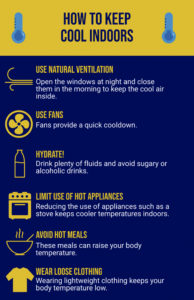Although cooler temperatures are on the horizon, it wasn’t long ago that local temperatures were in the 90s.
Historically, Ramstein is not an area where extreme temperatures exist for long periods of time. The base typically experiences high temperatures for no more than three to four weeks of the year.
Despite this, some on-base residents may wonder how to get relief from hotter months in the absence of air conditioning.
The United Facilities Criteria housing policy currently prevents the use of air conditioning in base housing and dorm units, as Ramstein has not met the threshold for continued extreme heat temperatures over a specified number of days. However, the 86th Civil Engineer Squadron is dedicated to working on a solution.
“Military members are our most valuable asset,” said Russell Hume, 86th CES deputy director. “We have to be able to take care of them and their family, so that’s why we’re looking at (solutions).”
The 86th CES is discussing the potential of requesting a local waiver to the DOD policy or pursuing a change to the policy. Additionally they are studying the feasibility of installing rolladens or air conditioning at stairwell housing units. Rolladens are commonly used in Germany to block direct sunlight and help keep a residence cool. While purchasing a personal air conditioner is tempting, civil engineers must make sure the electrical infrastructure to, and inside, stairwell housing is capable of supporting the additional power demand from air conditioning units before they are authorized throughout.

”Part of any engineering solution is the consideration of cost,” Hume said. “The increased operating cost from the A/C units is a substantial amount of money. But, cost is not the only
driver. There are many unquantifiable benefits in investing in our Airmen and their families’ well-being.”
Until a more enduring solution is approved to combat heat, stairwell residents are urged to use methods like natural ventilation or fans. Opening windows at night allows cold air to circulate around a home and closing windows during the day can help the cold air remain inside longer.
Though proper preparation helps, when a strong heat wave hits there is always a risk of heat-related illnesses like heat cramps, exhaustion and heat stroke, warns Capt. Andrew J. Keralis, 86th Medical Squadron emergency medicine physician.
Keralis recommends drinking at least one cup of water every 15 to 20 minutes in warm environments to stay hydrated.
Residents with heat-related medical concerns may be able to use air conditioning units in their homes provided they have approval from their medical provider.


